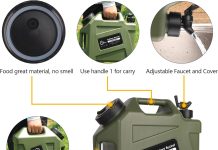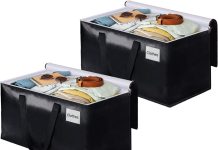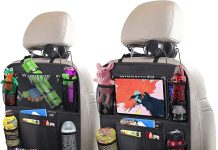In this article, we will explore the importance of practicing Leave No Trace principles while camping and provide practical ways to camp sustainably. As outdoor enthusiasts, we are responsible for protecting and preserving our natural environment, ensuring that future generations can enjoy the beauty of nature as we do.
By being mindful of our actions and taking simple steps to minimize our impact, we can make a positive difference in the places we visit. So, let’s embark on this journey to discover how we can leave no trace and camp more sustainably.
Review contents
Preparing for Your Trip
Researching Leave No Trace Principles
Before heading out on your camping adventure, it’s essential to familiarize yourself with the Leave No Trace principles. These guidelines are designed to minimize our environmental impact while enjoying the great outdoors. By researching and understanding these principles, you can ensure your camping trip is enjoyable and sustainable.
Choosing Sustainable Campsites
One of the first steps in planning a sustainable camping trip is selecting a campsite that aligns with Leave No Trace principles. Look for campsites that have established fire pits, designated waste receptacles, and well-maintained trails. Choosing campsites that already have these amenities in place helps minimize your impact on the surrounding environment.
Minimizing Waste
Reducing waste is a crucial aspect of sustainable camping. Be mindful of the packaging and items you bring on your trip. Opt for reusable containers, water bottles, and utensils to minimize single-use waste. Additionally, consider packing foods that have minimal packaging or are packaged in eco-friendly materials. You can leave a smaller environmental footprint by taking small steps to minimize waste.
Packing Essentials
Sustainable Camping Gear
When packing for your camping trip, choosing sustainable camping gear is vital. Look for gear made from eco-friendly materials such as recycled or organic fibers. Additionally, consider investing in durable and long-lasting gear that will serve you well on multiple trips, reducing the need for frequent replacements.
Eco-Friendly Toiletries
Many traditional toiletries contain harmful chemicals and can have a detrimental impact on the environment. Instead, opt for eco-friendly toiletries that are safe for you and the environment. Look for biodegradable soaps, shampoos, and toothpaste that won’t leave a lasting impact on the areas you explore.
Reusable Containers and Utensils
To minimize waste, bringing reusable containers and utensils on your camping trip is essential. This includes reusable water bottles, food storage containers, and utensils. By opting for reusable options, you significantly reduce the amount of single-use plastic and waste generated during your trip. Pack a wash basin and biodegradable soap to clean your reusable items while on the go.
Conserving Water
Collecting and Treating Water
Water is a precious resource, and conserving it while camping is essential. Before heading out, research the water sources available at or near your campsite. If fresh water is not readily accessible, you may need to collect and treat water from natural sources. Invest in a reliable water filtration system or carry purification tablets to ensure that the water you collect is safe for consumption.
Conserving Water While Cooking and Cleaning
Consistency of your water usage while cooking and cleaning is another essential aspect of sustainable camping. When cooking, try to minimize the water you use by utilizing one-pot meals or finding creative ways to reuse water between tasks. When cleaning up, use biodegradable soap sparingly and follow Leave No Trace principles by disposing dirty water at least 200 feet away from water sources.
Personal Hygiene and Water Conservation
Maintaining personal hygiene while camping is still essential, but it’s crucial to do so in a way that conserves water. Opt for biodegradable products when washing yourself or your dishes, and try to use small amounts of water efficiently. Consider using waterless hygiene options such as no-rinse body wipes or dry shampoo when possible. By being mindful of your hygiene practices, you can conserve water while staying clean and comfortable.
Fire Safety and Management
Choosing the Right Campfire Spot
If a campfire is permitted at your chosen campsite, selecting a suitable location is essential for fire safety and minimizing impact. Look for existing fire rings or designated campfire spots and utilize those whenever possible. This helps protect the surrounding vegetation and prevents the creation of unnecessary fire scars.
Using Existing Fire Rings or Creating a Safe Campfire Pit
When building a campfire, using existing fire rings or creating a safe pit following Leave No Trace principles is best. Use rocks or a metal fire ring to contain t, he fire and prevent it from spreading. If you must create a new fire ring, choose an area without vegetation and clear away combustible materials to minimize the wildfire risk.
Extinguishing and Cleaning Up Your Campfire
Properly extinguishing and cleaning up your campfire is crucial for fire safety and minimizing environmental impact. Pour water over the fire and stir the ashes until they are excellent. Then, disperse the ashes in a wide area away from vegetation and pack out any remaining debris. Leaving no trace of your fire helps preserve the natural beauty of the campsite for others to enjoy.
Proper Waste Disposal
Pack it In, Pack it Out Principle
The ‘Pack it In, Pack it Out’ Principle is a fundamental aspect of Leave No Trace ethics. Whatever waste you generate during your camping trip, carry it with you and dispose of it properly in designated waste receptacles. This includes everything from food scraps and packaging to personal hygiene products. Taking responsibility for your waste leaves the campsite as pristine as you found it.
Using Designated Waste Receptacles
When disposing of your waste, it’s important to use designated waste receptacles whenever possible. Many campsites provide dumpsters or trash cans specifically for campers to use. If these are unavailable, inquire about the waste disposal guidelines and follow them accordingly. By using designated waste receptacles, you ensure that your waste is disposed of properly and doesn’t pose a threat to wildlife or the environment.
Human Waste Disposal
Proper disposal of human waste is crucial for the health of both humans and the environment. When nature calls, bring a portable toilet or waste disposal bags specifically designed for camping. If these options are unavailable, act responsibly by finding an appropriate area at least 200 feet away from water sources, trails, or campsites. Dig a small hole 6 to 8 inches deep, do your business, and then bury and tamp down the waste to prevent animal disturbances.
Respecting Wildlife
Observing Wildlife from a Distance
Encountering wildlife while camping can be an incredible experience, but observing from a distance is essential to minimize stress and disturbance. Use binoculars or zoom lenses to get a closer look without intruding on their natural behaviors. Keep a safe distance and never approach or attempt to touch any wild animals. Remember, we are visitors in their homes, and respecting their space is essential.
Properly Storing Food and Trash to Prevent Wildlife Encounters
To avoid wildlife encounters at your campsite, storing your food and trash properly is crucial. Use bear-resistant food storage containers or hang your food in a bear bag suspended from a tree branch. Clean your cooking area, dispose of food scraps properly, and secure trash in airtight containers. By minimizing the scent of food, you reduce the likelihood of attracting animals to your campsite.
Avoiding Feeding or Approaching Wildlife
Feeding wildlife, intentionally or unintentionally, can have severe consequences for both animals and ecosystems. It can disrupt their natural foraging patterns and lead to dependency on humans, resulting in aggressive behavior or even animal euthanization. Avoid leaving food out or intentionally feeding wildlife; remember never to approach or try to pet any animals you encounter. Respect their space and leave them undisturbed.
Responsible for Food Preparation and Storage
Choosing Sustainable and Local Food Options
One way to sustainably camp is by choosing sustainable and locally sourced food options. Opt for foods that are minimally processed, have minimal packaging, and are grown or produced locally. Supporting local farmers and producers reduces the carbon footprint associated with long-distance transportation and allows you to experience the flavors of the region you are exploring.
Properly Storing Food to Minimize Waste and Prevent Animal Intrusion
Properly storing your food is essential for minimizing waste and preventing animal intrusions. This includes securely storing all food, beverages, and scented items in bear-resistant containers or suspended from high branches in a bear bag. Also, thoroughly clean your cooking utensils and dishes to remove residual food odors. Properly storing your food can prevent wildlife encounters and reduce the risk of animals becoming habituated to human food.
Using Eco-Friendly Cookware and Practices
Consider using eco-friendly cookware and practices while camping to further your sustainable efforts. Opt for reusable, non-toxic cookware made from stainless steel or cast iron materials. Avoid single-use items such as disposable plates and utensils. Instead, bring reusable alternatives such as bamboo or stainless steel plates, cups, and utensils. Using eco-friendly cookware and practices, you minimize waste and help protect the environment.
Leave No Trace Ethics
Leaving Natural and Cultural Features Undisturbed
A key aspect of Leave No Trace ethics is leaving natural and cultural features undisturbed. This means refraining from carving or damaging trees, rock formations, or historic structures. Leave rocks, plants, and other natural objects as you find, allowing future visitors to experience the area just as you did. By respecting and preserving these features, we ensure their longevity for future generations.
Respecting the Rights of Other Campers
Respecting the rights of other campers is an essential part of creating a positive camping experience. Keep noise levels to a minimum, especially during quiet hours, to allow others to enjoy the tranquility of nature. Respect designated campsites and avoid trespassing on private property. We foster a harmonious and enjoyable camping environment by being considerate and mindful of others.
Educating and Encouraging Others to Practice Leave No Trace Principles
As ambassadors of Leave No Trace principles, educating and encouraging others to follow these practices is essential. Lead by example and share your knowledge with fellow campers, friends, and family. Explain the importance of minimizing our environmental impact and the benefits of sustainable camping. By spreading awareness and inspiring others, we can collectively make a lasting positive impact on the places we love to explore.
Eco-Friendly Recreation Activities
Hiking and Exploring with Minimal Impact
Hiking and exploring with minimal impact is at the core of sustainable outdoor recreation. Stay on designated trails to avoid trampling fragile vegetation and habitat. Avoid cutting switchbacks, as this erodes the trail and furthers environmental degradation. Pack out any trash you encounter, even if it isn’t yours, and respect wildlife and their habitats. By practicing low-impact hiking and exploring, you help ensure the preservation of these areas for future generations.
Responsible Fishing and Hunting Practices
For those who enjoy fishing or hunting during their camping trips, it’s essential to do so responsibly. Follow all local fishing and hunting regulations and obtain the necessary permits or licenses. Practice catch-and-release fishing to conserve fish populations and only harvest what you need. Dispose of any fishing line, hooks, or other equipment properly to prevent wildlife entanglement. By being responsible in your fishing and hunting practices, you promote sustainable enjoyment of natural resources.
Leave No Trace Principles for Boating and Water Activities
When enjoying boating or water activities, it’s essealso ntial to apply Leave No Trace principles. Avoid disturbing wildlife or disturbing sensitive aquatic habitats. Minimize noise pollution and maintain a safe distance from wildlife in or near the water. Properly dispose of any waste, including fishing lines or lures, to prevent entanglement or harm to marine life. By practicing Leave No Trace principles while boating or engaging in water activities, you contribute to preserving our precious water ecosystems.
Supporting Local Conservation Efforts
Participating in Volunteer Programs
Participating in volunteer programs is an excellent way to give back to the environment and support local conservation efforts. Many organizations offer volunteer opportunities for trail maintenance, habitat restoration, and wildlife monitoring. Check with local conservation organizations or park agencies to find out about upcoming volunteer events in the areas you plan to visit. By contributing your time and effort, you help preserve and protect the natural resources we all cherish.
Donating to Conservation Organizations
If you cannot participate in volunteer programs, consider donating to conservation organizations. Many non-profit organizations work tirelessly to protect and preserve our natural resources. Research and choose reputable organizations that align with your values and donate to their ongoing conservation efforts. Even a small donation can make a big difference in supporting their work.
Joining and Promoting Environmental Initiatives
Finally, consider joining and promoting environmental initiatives that align with your values and interests. From climate action campaigns to local conservation groups, numerous initiatives welcome individuals passionate about protecting the environment. By actively participating and sharing the importance of these initiatives with others, you amplify the message of sustainability and contribute to collective action for a greener future.
In conclusion, camping more sustainably is a responsibility we all share. By researching Leave No Trace principles, choosing sustainable campsites, minimizing waste, conserving water, practicing fire safety, proper waste disposal, respecting wildlife, responsible food preparation and storage, upholding Leave No Trace ethics, engaging in eco-friendly recreational activities, supporting local conservation efforts, and encouraging others to follow suit, we can ensure that the beauty of nature remains undisturbed for generations to come.
So, let’s embark on our camping adventures with a commitment to leave no trace and positively impact the environment. Happy camping!



































